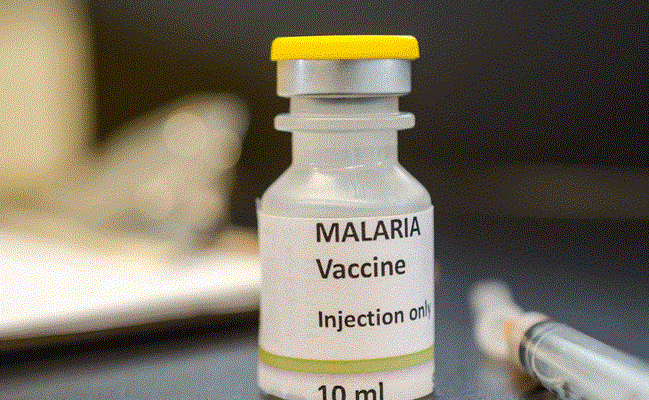By Stephen Adeleye.
Some medical experts in Kogi, reacted to the news of the breakthrough in malaria vaccine as recently announced by the World Health Organisation (WHO), describing it ‘as a welcome development’.
The experts in their separate interviews with the News Agency of Nigeria (NAN) on Thursday in Lokoja, said the breakthrough in malaria vaccine was very significant especially to Nigeria and Africa at large.
The Chairman, Nigerian Medical Association (NMA), Kogi chapter, Dr. Omakoji Oyiguh, said the news from WHO about the breakthrough in malaria vaccine was a welcome development.
”In Kogi, we see a lot of malaria cases in children and in adults. So, any effort to help us to manage or reduce the burden of malaria is welcome.
”We call on the federal government to begin to look at this development with a view to ensuring that Nigeria benefits”, Oyiguh said.
Dr Adekunle Aledare, the Executive Secretary, Kogi State Health Insurance Agency (KGSHIA), said the vaccine would help reduce the Global burden of Malaria and the burden in Nigeria being an endemic disease with stable malaria.
”It will help to reduce e the death rate in Nigeria especially in Africa and Nigeria where Malaria is endemic and stable, meaning malaria occurs all year round
”Children are being prioritised for the vaccine because they are more vulnerable to severe malaria which may lead to death compared to adults who rarely dies of malaria”, Aledare said.
Dr Austin Ojotule, Kogi State Epidemiologist, said the break though is a welcome development that was long overdue.
”It will go a long way in reducing malaria burden and deaths in the west africa subregion and Nigeria in particular.
”We hope it will be made available to the citizens at affordable cost”, Ojotule said.
On his part, Dr Solomon Anyegwu, the Provost Kogi State College of Health Sciences and Technology, Idah, said the breakthrough in malaria vaccine (RTS/S) in recent time was another milestone in Science and Research, saying it was worthy of commendation.
Anyegwu, who was the immediate past Deputy National President, Environmental Health Officers Association of Nigeria (EHOAN), told NAN that the vaccine would greatly reduce incidence of malaria in children particularly the mortality rate.
He stressed that the vaccine would serve one of the preventive strategies in controlling communicable diseases.
”Be that as it may, more efforts are expected to be made in Environmental sanitation measures because the malaria vaccine is only for children and is effective majorly in malaria caused by plasmodium falciparum.
”What about all other age groups affected by malaria and the malaria caused by vivax, ovale and other species of the parasites, a major limitations”, Anyegwu stated.
Another expert, Dr Kabiru Zubair, the immediate past chairman of Kogi NMA, said the breakthrough in malaria vaccine was very significant to Nigeria and Africa at large.
Zubair emphasised that malaria has remained the commonest cause of fever in Nigeria and Africa, and Worldwide.
”In 2019, malaria is responsible for about 229 million cases in 87 countries according to WHO report for 2020.
”African region with an estimated 215 million cases in 2019 account for about 94% of cases. Nigeria accounted for 27% of this figure.
”The death rate is 409,000 worldwide, 386,000 in Africa according to the report.
”In addition to these cases and death burden, malaria also impact social development and the economy”.
”The burden of malaria is worst amongst the under five causing high mortality rate in this group. So, this vaccine will reduce this burden in Africa and Nigeria”, Zubair said.
The Chairman, National Association of Government General Medical and Dental Practitioners (NAGGMDP), Kogi chapter, Dr Okungbowa Osaretin, said substantial global progress has been made in reducing Child deaths since 1990.
He explained that the total number of under-5 deaths worldwide had declined from 12.6 million in 1990 to 5.2 million in 2019.
”Since 1990, the global under-5 mortality rate has dropped by 59%, from 93 deaths per 1,000 live births in 1990 to 38 in 2019.
”This is equivalent to 1 in 11 children dying before reaching age 5 in 1990, compared to 1 in 27 in 2019.
”Sub-Saharan Africa remains the region with the highest under-five mortality rate in the world, with one child in 13 dying before his or her fifth birthday.
”Unfortunately, Nigeria is among the Countries with the highest number of deaths for under 5 to 9-years old.
”According to the USAID President’s Malaria Initiative FY 2020, Nigeria Malaria Operational Plan, Malaria is transmitted all over Nigeria; 76 per cent of the population live in high transmission areas while 24 % of the population live in low transmission areas”, Osaretin said..
He added: ”According to the 2020 World Malaria Report by WHO (2019), Nigeria had the highest number of global Malaria cases (27 % of global malaria cases) in 2019 and accounted for the highest number of deaths (23 % of global malaria deaths)”.
He, therefore noted the Novel Malaria Vaccine was a significant Millennial milestone in curbing under 5 and Child Morbidity and Mortality across the Sub-Saharan Africa and Nigeria in particular.
He, however urged the WHO to assist in making sure that the Malaria vaccine Policy was properly implemented using the appropriate tools.
According to him the tools include, Re-training of Health Personnel, well coordinated regional enlightenment programs across the Sub Saharan African population and all of that.
”Our appreciation goes to all the Novel Scientists for this wonderful, long awaited vaccine break through,” Osaretin said.




